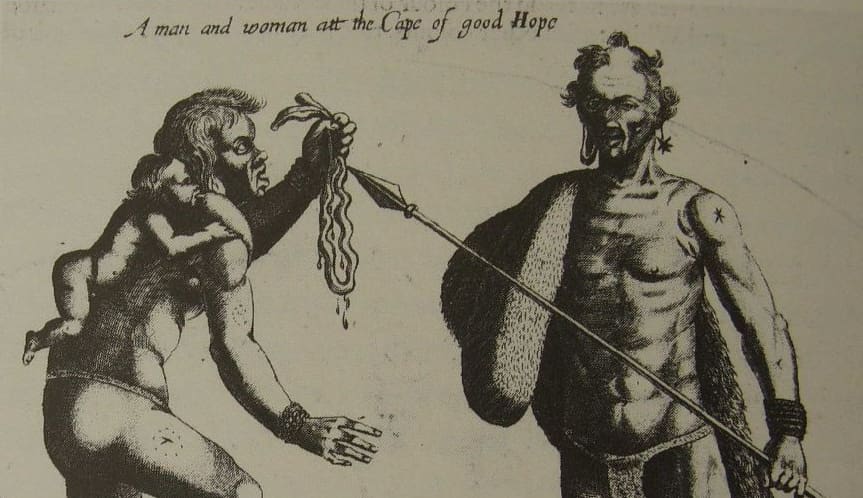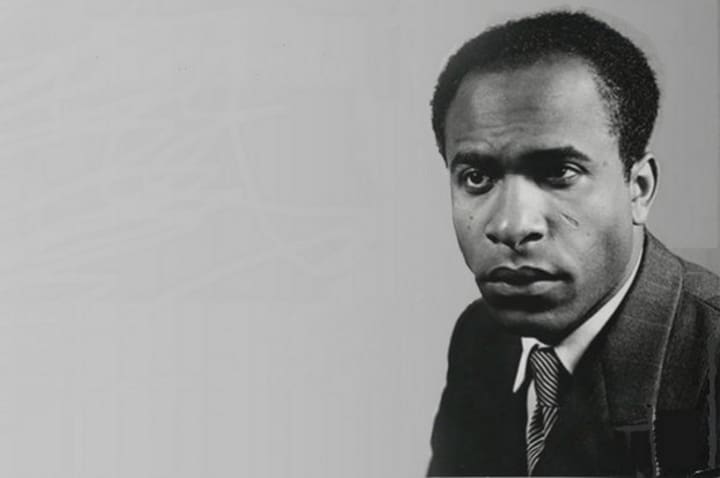Transcribed from the 2 July 2016 episode of This is Hell! Radio (Chicago) and printed with permission. Edited for space and readability. Listen to the whole interview:
A liberal typically understands black people as inferior as a result of their culture, and progressives typically view black people as inferior as a result of the history of oppression. In both cases, the premise is the same: black people are inferior.
Chuck Mertz: What came first? The racist ideas we may have—whether we recognize them as racist or not—or racial discrimination? And what can we do to confront our own racist ideas that we don’t even recognize as racist?
Here to be our tour guide through the landscape of racism in the US, historian Ibram X. Kendi is author of the book Stamped from the Beginning: The Definitive History of Racist Ideas in America.
Welcome to This is Hell!, Ibram.
Ibram X. Kendi: It’s a pleasure to be here.
CM: Great to have you on our show. This is a fascinating book, and it really opened my eyes a lot—and opened your eyes; you write how writing this book opened your eyes to your own racism.
What racism did you not perceive as racism? How did your thoughts on race change by doing this book?
IK: The first thing I had to do in writing this book was define what a racist idea is. I defined it as any idea that suggests black people—or really any racial group—are inferior in any way, if there’s any racial hierarchy. Personally, I believed things like that there was an “achievement gap,” that whites were achieving, intellectually, at a higher level than blacks were. I believed things like black neighborhoods were more dangerous than white neighborhoods.
When I studied the statistics, I found that actually there’s no such thing as a dangerous black neighborhood. We know that there’s such a thing as a dangerous unemployed neighborhood. There’s a direct correlation between unemployment and violent crime. As for the achievement gap: that is based on standardized tests. And we know the history of standardized tests; the only thing standardized tests measure is whether somebody can take a standardized test well.
CM: So we need to get our minds around the idea that people might be different, but they’re still equal. What keeps us from thinking that even though you’re different, we’re still equal?
IK: We’ve consumed ideas that differences connote inferiority and superiority since birth. It’s very difficult for people to understand that central idea, that difference can simultaneously be the same. We can be different but on the same level. You can be practicing a different culture, but that culture can be on the same level as the culture that another person is practicing.
That’s one of the myths that I try to dispel. People can be different; people can look different, but everyone can be just as beautiful—or just as ugly.
CM: You describe the time that you were writing your book as “between the heartbreaks of Trayvon Martin and Rekia Boyd and Michael Brown and Freddie Gray and the Charleston Nine and Sandra Bland—heartbreaks that are the product of America’s history of racist ideas. Young black males were 21 times more likely to be killed by police than their white counterparts between 2010 and 2012, according to federal statistics. The under-recorded, under-analyzed racial disparities between female victims of lethal police force may be even greater.”
How much do you think those killings are driven by a police officer’s personal, individual racism, and how much do you think those are driven by racist policies that may not even be seen, by those who enforce them, as racist policies?
IK: It’s driven by both, and it’s really hard to quantify how much is either. We know that the vast majority of Americans, for example, truly do believe that certain black neighborhoods are extremely dangerous, and that the people in those neighborhoods are dangerous, and that they should be feared. Of course a police officer who comes of age in this America that teaches this connection between blackness and crime is going to believe those ideas, and when they go onto the streets in black neighborhoods and they’re policing these people, they’re going to put those ideas into practice.
Those ideas are just one of many factors. Of course there is a whole series of different policies that enable them to racially profile and get away with it, for example.
CM: You point out that African-Americans are more likely to be killed by police and more likely to be incarcerated. Can we just blame all these outcomes on poverty? Can we blame it on shortcomings in education, healthcare, environmental and worker protections, lower wages—any and all the problems that combine to create poverty?
IK: We could, but then we have to simultaneously ask the question why black people are disproportionately poor. When we ask that question, we receive some economic reasons, but we receive some racial reasons as well.
CM: So does blaming problems associated with racism on poverty distract us from the issue of racism?
IK: I think so. Blaming it totally on the issue of poverty distracts us from racism. Because what we’ll do is become poverty warriors. We’ll go out and try to eliminate poverty, while not simultaneously trying to eliminate the racial discrimination that deepens or even causes the poverty.
CM: You point out that racist ideas are older than the United States itself. How much does that lead us to a defeatist attitude toward racism, as if it were something we have always had, and therefore, will always have?
IK: It certainly could. Too many historians talk about racism—or, I should say, racist ideas—emerging in the early 1800s because they don’t want to go back another 350 years, because they think that they’ll create even more of a defeatist attitude.
One of the things that I try to show in Stamped from the Beginning is that when people are articulating racist ideas, at every point during every century, there were also people articulating antiracist ideas. And people have constantly showed the possibilities of antiracist thinking.
CM: So is antiracism as new as we might think it is? A lot of people may believe that the fight for civil rights started shortly before the Civil War, or started shortly after the Second World War with the 1950s Civil Rights Movement. Is the fight for civil rights, or antiracism, older than we think it is?
IK: Without question. To give an example, I chronicle a group of Anabaptists in Philadelphia who came together and wrote a petition against slavery—in 1688. Of course, they came over from central Europe and had experienced religious persecution, so when they arrived in the Philadelphia area (which was a major slaveholding area) they connected the religious persecution that they had suffered with the racial persecution they saw black people suffering, and they wrote this famous petition against slavery. And not only did they write that petition against slavery—in no way in their petition did they describe black people as inferior. That was in 1688.
CM: You write that when it comes to racial inequality, “historically there have been three sides to this heated argument. A group we can call segregationists has blamed black people themselves for the racial disparities; a group we can call antiracists has pointed to racial discrimination; and a group we can call assimilationists has tried to argue for both, saying that black people and racial discrimination were to blame for racial disparities.
“During the ongoing debate of police killings, these three sides to the argument have been on full display. Michael Brown was a monstrous, threatening thief, therefore Darren Wilson had reason to fear him and to kill him. Antiracists have been blaming the recklessly racist behavior of the police: the life of this dark-skinned eighteen-year-old did not matter to Darren Wilson. Assimilationists have tried to have it both ways: both Wilson and Brown acted like irresponsible criminals.”
Are assimilationists a bigger obstacle to equality than segregationists? Do assimilationists give cover for segregation?
IK: I think they are a bigger obstacle, if only because we don’t understand the ways they have been an obstacle. The segregationists that I chronicle in the book—those stories are not new to people. There have been racial reformers who have challenged those segregationists from the beginning. But since we don’t understand assimilationists as racists, since we don’t see them as obstacles, we haven’t sought to challenge them. That has made them more of an obstacle, ultimately.
Racism has been utilized to control the working class over and over again—we see this with the current election—and not only the working class but also the middle class. Racist ideas have been used to control these groups of people, to control their voting patterns and their economic patterns.
CM: You write how “Many prominent Americans, many of whom we celebrate for their progressive ideas and activism, many of whom had very good intentions, subscribe to assimilationist thinking that also serves up racist beliefs about black inferiority. We have remembered assimilationists’ glorious struggle against racial discrimination, and tucked away their inglorious partial-blaming of inferior black behavior for racial disparities.
“For solutions, they maintain that the ugly black stamp can be erased, that black behaviors can be developed, given the proper environment. As such, assimilationists constantly encourage black adoption of white cultural traits and/or physical ideals.”
Is the problem the assumption that black behavior leads to the inequality and discrimination blacks face every day? I do hear that a lot, even from people who are liberals, even progressives. They often try to lay some blame at the feet of African-Americans themselves.
IK: Yes, that is the problem. And we can distinguish between liberals and progressives: a liberal typically understands black people as inferior as a result of their culture, and progressives typically view black people as inferior as a result of the history of oppression—in other words, the history of dealing with slavery and oppression has literally made black people inferior. That’s the progressive argument.
In both, the premise is the same: black people are inferior. This is the same premise as with the segregationists’ argument, which is essentially that black people are inferior as a result of their genetics. One says genetics, another says culture, another says the history of oppression, but it’s all the same argument: that we should not fundamentally and primarily challenge racial discrimination; we have to civilize and develop and heal black people.
CM: You write, “For generations of Americans, racist ideas have been common sense. The simple logic of racist ideas has manipulated millions over the years, muffling the more complex antiracist reality again and again.”
If racism is simple, and antiracism more complex, what issues does racism avoid? And what are we missing when we blame an issue on something being inherently racist?
IK: On the other end of Black Lives Matter, we’re talking about racial discrimination more and more. However, when we talk about racial issues and racial problems, we still go back to the previous question; we still feel the need to create programs and projects and theories that somehow improve black behavior, as if that is also a problem.
To your question, racist ideas have prevented us from truly seeing that the main issue is discrimination and exploitation and a series of other oppressive calamities, and not the actual behavior of the people.
And when I say that, I’m not saying that there aren’t individual black people who are lazy or who aren’t that intelligent or who are dangerous. What I’m talking about is that when we start saying that groups are lazy and groups need to be refined, then when we’re getting into racist ideas.
CM: You write, “Americans are thoroughly divided over—and ignorant of—what racist ideas truly are.” How confused are we by what is racist and racism, and what is not? Is racism in the eye of the beholder? Is it a subjective thing?
IK: It is extremely subjective, but I think it’s subjective strategically. In my study of the history of racist ideas, I have yet to find a group of racist theorists who were willing to admit that their theory was racist. Each group of theorists has argued that their theory is not racist—and in doing so, they redefined racist ideas.
We saw this eight years ago with the emergence of post-racial theory. Post-racial theorists made the case that to even talk about race is to be racist. That allowed for them to castigate Obama or someone in Southside Chicago or anyone who was talking about race as racist, and for them simultaneously to continue the racist policies that are truly the things that are harming black people.
No group of racists wants to define themselves as racist, and they all claim that they’re not. That’s created all types of confusion.
CM: You write how “Cotton Mather’s writings and sermons were widely read in the colonies and in Europe, where the progenitors of the scientific revolution and then the Enlightenment were racializing and whitening freedom, civilization, rationality, and beauty.”
To repeat: the scientific revolution—and then the Enlightenment—were racializing and whitening freedom, civilization, rationality, and beauty. Were they doing this—were they making all these contortions to religion, to science, even to the Enlightenment—in order to rationalize slavery?
IK: Some of them were doing it consciously to rationalize slavery. Others were doing it consciously to rationalize colonization. Others were doing it consciously to rationalize capitalism. There were a number of different reasons. Others were simply doing it because those were the ideas that were circulating at the time and they were building on those ideas. Scholars typically either create or build on ideas. Some were creating racist ideas for very conscious reasons, and others were building on those ideas.
Cotton Mather in particular—who was a Boston theologian and really the first great American intellectual—made the case that there could be such a thing as Christian slavery in England (“Christian slavery” was regarded as an oxymoron), by saying that racial groups were equal in soul but unequal in body.
CM: You write, “Hate and ignorance have not driven the history of racist ideas in America; racist policies have driven the racist ideas in America. This fact becomes apparent when we examine the causes behind—not the consumption of—racist ideas, and the production of racist ideas.”
So is racism not our fault, individually, but the system’s fault as a whole? Is it not my fault but the government’s fault? Is racism not driven by my hate, but by government policy?
IK: Yeah, if we understand government policy as the policy of the powerful. The powerful have constantly instituted or defended racist policies. Then, of course, the effects of racist policies have always been racial disparities and inequities. That is the effect of racist policy. If you decide you want to exclude black people from a company, what’s going to happen? There are not going to be any black people there, and there’s going to be racial inequality and disparity.
Powerful people have rationalized and normalized the paucity of black people, or the lack of resources in black communities (or even in black bank accounts) by blaming black people. “No, there are no qualified black people, that’s why there are so few black people in this company.”
I studied exactly why they produced certain specific ideas at certain specific times. How did it benefit them economically, politically, or even culturally? And I found over and over again that it was the need to defend racist policies and normalize racial disparities that caused these people to create these ideas.
Then we—you and I, many of your listeners—consume these ideas. We consume them, and then of course we reproduce them. Which is precisely what they wanted us to do.
CM: If we defeat racial discrimination, then, will we defeat racism? And if that is the case, are we distracted from racial discrimination by racism?
IK: Yes. I talk about the tactics we have used against racist ideas—education, persuasion, performance (black people have tried to defy stereotypes in front of white people, thinking that will undermine their racist ideas). All of these tactics have made the case that ideas lead to policies. But if you recognize that the policies are leading to ideas, then you’ll focus on the policies.
I talk about racist ideas as being the PR arm of a company. If you eliminate the company, what happens to the PR arm? It’s eliminated, too.
I cringe when I hear progressives call people like Donald Trump—or even George W. Bush—stupid. Because we don’t recognize the ways they are manipulating people.
CM: You write, “If racism is eliminated, many white people in the top economic and political brackets fear that it would eliminate one of the most effective tools they have at their disposal to conquer and control and exploit not only non-whites, but also both low-income and middle-income white people.”
Is racism about controlling the working class?
IK: Racism has been utilized to control the working class over and over again—we see this with the current election—and not only the working class but also the so-called middle class. I say “so-called” because we don’t really know where that begins and where that ends. People tend to understand themselves, for whatever reason, as middle class and not working class. But racist ideas have been used to control these groups of people: to control their voting patterns, to control their economic patterns.
We know that in Chicago—as well as other places in the country—block-busting has been used to manipulate middle-income whites. First you hear, “Black people are moving into your neighborhood, you need to flee!” Then the real estate agent sells you a home in a suburban neighborhood, and forces you to sell your old home below market value. So you buy this new home in the suburbs that you don’t really need, and they profit from all of that. They manipulated your racist ideas, because you believed that black people moving in would somehow make that neighborhood unsafe.
CM: Let’s talk about one of those racist ideas real quick, because there’s one that really bugs me, and I’m glad that we’re having you on the show so you can explain this to me. How do you explain to somebody that the idea of “reverse discrimination” is racist?
IK: The first thing is to ask them whether they think black people are being discriminated against. Because typically, most people who tout “reverse discrimination” make the case that there’s an equal playing field, that “black people have arrived.” This emerged after the Civil Rights and Black Power Movements, the idea that black people had arrived, that discrimination is eliminated…and that the only people who are being discriminated against right now are whites.
So I would ask them whether black people are being discriminated against. Typically they would say no. Then I would ask them if they consider themselves to be racists, and of course they’re going to say no. Then I would ask them why they think these disparities exist—and you can bring up any sort of disparity, from black unemployment rates being twice as high as white unemployment rates; forty percent of prisoners being black people even though they only represent thirteen percent of the national population—and typically they are somehow going to blame black people. They are going to talk about black people being lazy, or crime-prone.
Then you have to demonstrate that that idea is racist, and that racist idea is then building to the other racist idea of reverse discrimination.
CM: You write about the idea of educational persuasion, that racism could be persuaded away through presenting the facts. “Educational persuasion came in many forms,” you write, “and they have been predicated on the false construction of the race problem, the idea that ignorance and hate lead to racist ideas, which lead to racist policies. In fact, self-interest leads to racist policies, which lead to racist ideas, leading to all the ignorance and hate.”
So racists aren’t stupid? What mistake do we make when we think that people who are racist are just stupid?
IK: I think that’s one of the biggest mistakes that progressives constantly make. I cringe when I hear progressives call people like Donald Trump—or even George W. Bush—stupid. Because we don’t recognize the ways they are manipulating people, and they are very smart to learn how to manipulate people.
We assume the ideas they tout are ideas that they really believe. How could they believe those stupid ideas? So we call them stupid. But what if they don’t actually believe those ideas, but are using them to manipulate people—and clearly using them very effectively? Are they stupid?
They’re actually quite brilliant for learning how to manipulate people. Of course this is brilliant in an evil way, but it’s brilliant nonetheless. We need to see these people for what they are, and that is mass manipulators.
CM: You write, “Antiracists should stop connecting selfishness to racism and unselfishness to antiracism. Altruism is wanted, not required. Antiracists do not have to be altruistic. Antiracists do not have to be selfless. Antiracists merely have to have intelligent self-interest, and stop consuming the racist ideas that have engendered so much unintelligent self-interest over the years.”
Now, Tom Frank wrote about voting against your best self-interest in What’s the Matter with Kansas? twelve years ago. He showed how conservatives in Kansas were backing economic policies that actually hurt them. Now you’re talking about racism going against our own self-interest.
So, to you, what drives US voters—not just the voters in Kansas—so often to go against their best self-interest, by supporting either economic or discriminatory policies that actually hurt them?
IK: Racist ideas—and sexist ideas; a number of different forms of bigotry—are one of the things that are at play in causing American voters to go against their self-interest. But in the context of the larger American project, the idea of an American Dream—that I can become a rich person, and therefore I don’t want to break down the benefits that help rich people succeed in this country at the expense of the working class, because I’m going to be there one day—that idea is quite prevalent among working people in their voting patterns. That idea of the American Dream, as it actually exists, combines with all these other racist, sexist, homophobic, nativist ideas to make us vote against our self-interest.
CM: Ibram, it has been a pleasure speaking with you. This is a fantastic book, and I really appreciate you being on the show with us this morning.
IK: Thank you, Chuck, it’s really been a pleasure.
Featured image: Page 17 from Thomas Herbert, A Relation of Some Yeares travels into divers parts of Asia and Afrique, 1634.
Extracted from Early Modern Dutch Prints of Africa by Elizabeth A. Sutton





